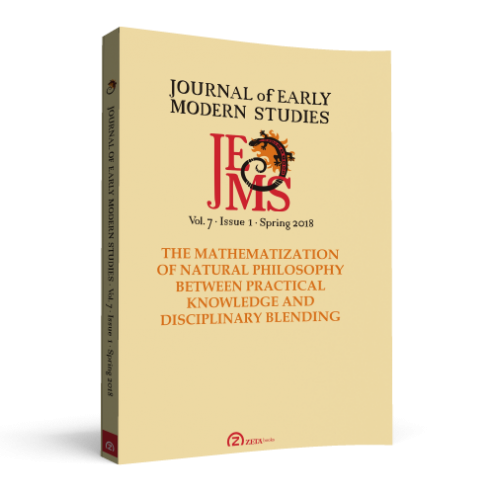Descartes’ Theory of Abstraction in the Regulæ
Descartes’ Theory of Abstraction in the Regulæ
Author(s): Grigore VidaSubject(s): Philosophy, Early Modern Philosophy
Published by: Zeta Books
Keywords: Descartes; abstraction; exclusion; mathematical physics; imagination; perception;
Summary/Abstract: I analyze in this article the different ways in which Descartes uses abstraction in the Regulæ, discussing his project of a mathematical physics, the role of the imagination, and the status of numbers. I also try to show that the doctrine of simple natures cannot be well accommodated with the theory of abstraction developed in Rule 14, having instead a greater affinity with Descartes’ later theory of abstraction and exclusion (from the period after the Meditationes), in which imagination plays no role and everything happens at a strictly intellectual level. This interpretation is supported by the recent discovery of the Cambridge manuscript, which almost certainly records an early stage of composition and in which the doctrine of simple natures is absent, thus being very probably a later development.
Journal: Journal of Early Modern Studies
- Issue Year: 7/2018
- Issue No: 1
- Page Range: 105-121
- Page Count: 17
- Language: English
- Content File-PDF

